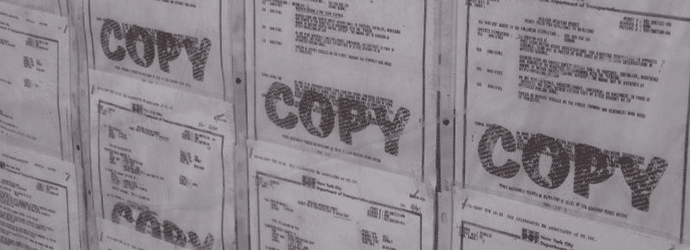Keeping a meticulous lab record of your experiments is a necessity. And it’s drilled into us to back up our computers, including backups stored in different locations to ensure vital records don’t get lost.
But how do we protect the hard copy information in our lab books?
You may not have given much thought previously to what pen you use to keep your lab book up to date, but this is a more critical choice than you might realise. Have you ever considered how vulnerable your hardcopy lab book is to destruction?
There are many ways that critical information in your lab book could be destroyed or defaced if you’ve not chosen your pen wisely. But nowadays there’s a huge selection of writing instruments available to help you avoid your lab book’s records being damage by liquid, light, fire and (possibly) even gunshots. Here’s what to look out for, and what to avoid.
Pencils
You may have heard the old story about NASA spending millions of dollars to develop a pen to write in space when the Russians just used a pencil? Does this make pencils a good choice for you? Sadly not. The ease of which pencil can be erased and rewritten makes it a no-no for documenting information that should be permanent and therefore should be avoided for use in lab books.
Ball Point Pens
Not all ball point pens are created equally so make sure you check out your pen for water resistance and preferably solvent resistance too.
If you want a ball point pen that can write upside down, in zero gravity, in freezing cold and underwater then I might question where you are writing up your notes. Luckily the Fisher Space Pen can do all of that! Designed originally for use in space this pen certainly trumps the humble pencil.
Rollerballs and Gel Pens
UniBall offers a range of roller ball and gel ink pens which boast their Super Ink™. The company states that this ink is of archival quality and resistant to water, light and chemicals (but doesn’t state which chemicals). If you like your lab books to be colourful, this ink is available in a range of colours too!
Sharpies
Sharpies have made their name for being the go-to permanent marker so is this suitable for your lab notebook? If solvent resistance is something you are looking for then look elsewhere as the ink in these pens, and their equivalents from other brands, can be removed by solvents (something to consider when using them on labels too). Also, being a marker pen means they can bleed through to the underside of pages and could make your lab book look untidy and unprofessional.
Fountain Pens
Somewhat of an old-school choice, fountain pens shouldn’t be outright discounted. If you are comfortable wielding such an instrument then this could be a good choice, so long as you select your ink with care. There are several inks that are suitable, such as the bullet proof black ink from Noodler’s. This ink is archival; UV, bleach and fade resistant; impervious to lasers and solvents; and waterproof. While I’m not sure using this ink would actually mean your lab book would withstand gun fire, it seems it would be able to cope with most other hazards.
A downside to fountain pens is that the ink can take slightly longer to dry, so if using these take care not to slam your labbook closed or turn pages to quickly after writing to prevent smudge.
Technical Pens
Another possible solution is a technical pen such as the Smart Pens
Is protecting your notebook from water and solvents enough? Don’t you also want to keep your notes safe from greater destruction like fire? Then you might want to consider a smart pen such as those from livescribe.
These pens can store up to 1,200 pages of handwritten notes and also can auto sync these notes to cloud services meaning your handwritten lab book can be digitally backed up too! Another bonus is that the digitally stored handwritten notes are searchable, making tracking down that vital information simple and quick.
The big downside to this pen is that it requires special paper to write on so if you need to use specific lab books specified by your institution this might not be suitable.
So if you’re shopping for new stationery, we hope this guide helps you track down the perfect pen for your laboratory notetaking needs!





